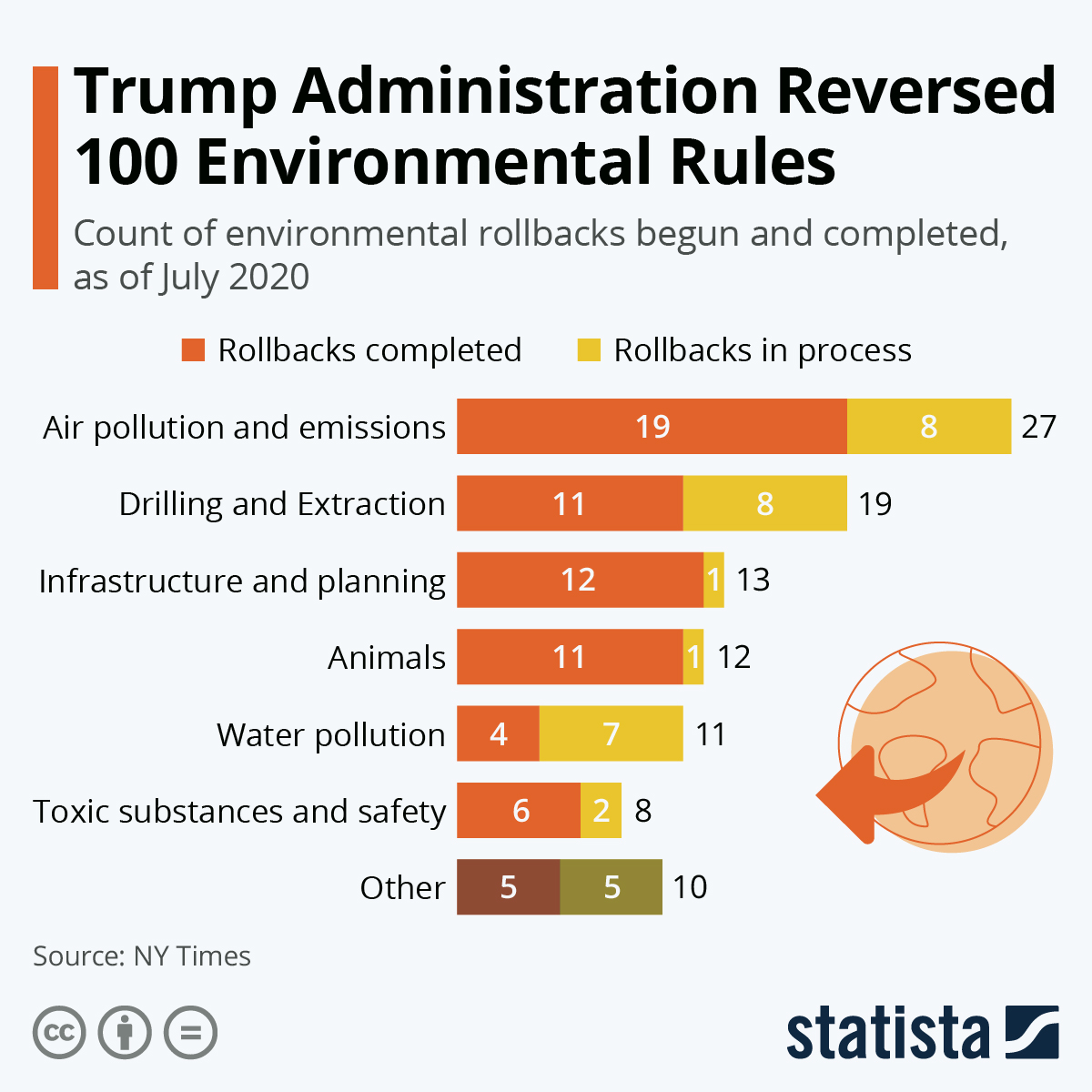In mid-April, the Trump administration cut down an Obama-era rule for coal plants to limit their emissions of mercury and other pollutants. In late March, more Obama-era regulations, this time fuel efficiency standards, were severely altered, allowing carmakers to proceed towards fuel-efficient cars more slowly as well as lowering the overall goal.
The current administration has repealed or started to rollback 100 environmental regulations since coming into power in 2017. The administration has throughout branded its initiative as a way to remove obstacles for business, especially the fossil fuel industry.
27 rollbacks were completed or started for regulations dealing with air pollution and emissions, the most of any single environmental regulation category. Notably, the administration is eliminating requirements for oil and gas companies to report methane emissions and calculate the “social cost of carbon,” an Obama-era rule meant to estimate the long-term benefits of reducing carbon dioxide emissions.
Regulations dealing with drilling and extraction is the second category with the most rollbacks, with 19 completed or in progress. Some significant changes to environmental regulations the Trump administration has accomplished include approving the Dakota Access pipeline, which runs less than a mile from the Standing Rock Sioux reservation; cutting the border of two national monuments in Utah; repealing water pollution regulations for fracking on federal and reservation lands and revoking EPA regulations that would have forced mines to prove they can pay to clean up pollution they are causing.





















